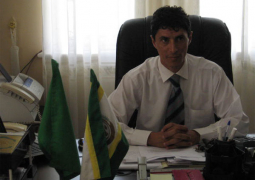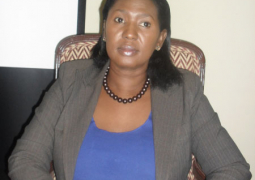Through the National Nutrition Agency (NaNA), Unicef on Saturday donated two Iodization plants with their generators to the National Association of Salt Producers and Traders (NASPaT) during their annual conference at the ChildFund-built campus in Bwiam.
The donation of two machines, two generators, 10,000- 25kg Bags, potassium Iodine, boots, overalls, and gloves is part of the two organization’s quest to see that every Gambian citizen consumes iodized salt to be able to be spared the effects of iodine deficiency.
Addressing participants during the conference, NaNA director general Modou Cheyassin Phall said knowing the fact that The Gambia produces only 10% of the iodized salt its citizens consumed with the 90% coming from neighboring Senegal, Unicef decided to bring the machines and the generators for NASPaT to help the country produce and consume her own iodized salt.
“Our survey shows that 76% of our population consumes iodized salt and we are not stopping until we have the 90% target. And we can only achieve such with the cooperation of NASPaT and the Gambian communities,” Mr Phall said.
He went further to urge the communities through their association that they should help to complement the government and the private sector in the development of the country as “they can’t do it alone”.
“Eating unionized salt transforms the health of individuals especially children and pregnant women, and health should be seen as the most important aspect in life, without it is meaningless to live,” he noted.
He also told the community that the machines are theirs and they should take it as the lifeblood of the association as it can help them achieve their goal in development, which is to see all salt iodized.
He added that no one should again complain of a market as “the World Food Programme is ready to buy well iodized salts”.
The machines he said would serve as an income-generation source for the communities, and if taken good care of, the machines would help the community get more salt iodization and development.
“NaNA will not relent but will always support and monitor their activities and will also be there to serve as advisers,” he said.
Speaking on behalf of the Health Minister, Modou Njie, Director of Health Promotion and Education, advised the executive committee of NASPaT to take good care of the machines and seek advice from NaNA whenever the need arises.
“NaNA has done their part, now it is left to you to do yours after these expensive machines have been handed to you,” he said.
“Our aim as Gambians is to see that all the salt sold and consumed in the country is iodized for health reason, which is the most fundamental aspect in life.”
Standley Mwase, who represented Unicef at the conference, said Iodization of salt is very important in the Gambia. “We all know the impact Iodine deficiency has on one’s health. It is important that the salt we consume is iodized as salt is very important to people’s health.”
He said further” “I thank NaNA and the Health Ministry for sensitizing the communities on the issues of salt iodization. The government is doing all it could to see that every salt produced and consumed in the country is iodized.
“We have gained a lot and with the leadership of this country, the 90% salt iodization will be realized. Unicef will continue to support, which is why we bought these machines and their generators and other iodization materials to achieve the 90% target.”
Sandeng Njie, the president of the association, thanked Unicef and NaNA for their contribution to national development, and promised them that “the machines will be taken care of and put into good use”.
Election of New President
After the presentation of the machines and other materials, the executive unanimously elected Sandeng Njie, the then vice president as the new president to fill in the vacant presidential post the association faced after the death of their much praised Alhagie Filije Nyassi, who passed away months before the conference.
Speaking to the press after his election, Njie promised to lead the association with dedication and commitment during his leadership tenure.
He called on the support of the entire membership, the government, and other institutions, and also appealed to NaNA and Unicef to beef up their support to NASPaT.
Read Other Articles In Article (Archive)
Blaze at Gambia College Student's Family Home
Feb 17, 2009, 5:05 AM



